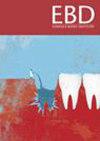Dental autotransplantation: a viable solution for preserving oral health and function
Q3 Dentistry
引用次数: 0
Abstract
An umbrella review of systematic reviews and meta-analyses on dental autotransplantation (DAT). To provide a comprehensive overview of the current state of knowledge on prognostic factors, outcomes, and complications of DAT by synthesizing the evidence. A comprehensive search of six databases was conducted for systematic reviews and meta-analyses published up to June 30, 2022. Two authors independently performed study selection, data extraction, and quality assessment using the AMSTAR 2 tool. Raw data from primary studies were analyzed using a random effects meta-analysis, and meta-regression was performed to investigate the effect of open and closed apices on the outcomes. Ten systematic reviews, of which nine included meta-analyses, were examined. The overall success rate of the studies was 89.4%, and the survival rate was 96.1%. The main complications were ankylosis (4.6%) and root resorption (7.4%). The analysis showed that a closed apex increased the proportion of ankylosis, resorption, and reduced survival but had no effect on success. The quality of the systematic reviews included varied, with 20% scoring moderate, 60% scoring low, and 20% scoring critically low on the AMSTAR 2 scale. Dental implant therapy is a reliable solution for replacing lost or damaged teeth, with high success and survival rates. However, it is a procedure that requires precision and attention to detail, along with careful selection of suitable candidates, comprehensive planning, and consideration of factors that may impact outcomes. To improve results and reduce potential complications, it is essential to establish standard clinical guidelines and conduct further extensive research.牙科自体移植:保护口腔健康和功能的可行方案
设计对牙科自体移植(DAT)的系统综述和荟萃分析进行总体回顾。目的通过综合证据,全面概述目前关于牙科自体移植的预后因素、结果和并发症的知识状况。方法对六个数据库中截至 2022 年 6 月 30 日发表的系统综述和荟萃分析进行了全面检索。两位作者使用 AMSTAR 2 工具独立完成了研究选择、数据提取和质量评估。使用随机效应荟萃分析法分析了主要研究的原始数据,并进行了荟萃回归分析,以研究开放式根尖和封闭式根尖对结果的影响。研究的总体成功率为 89.4%,存活率为 96.1%。主要并发症是强直(4.6%)和牙根吸收(7.4%)。分析表明,封闭的根尖会增加强直和根吸收的比例,降低存活率,但对成功率没有影响。所纳入的系统综述质量参差不齐,根据 AMSTAR 2 评分标准,20% 的综述得分中等,60% 的综述得分较低,20% 的综述得分极低。然而,它是一种需要精确和注重细节的治疗方法,同时还需要仔细选择合适的候选者、全面规划并考虑可能影响治疗效果的因素。为了提高疗效并减少潜在的并发症,必须制定标准的临床指南并开展进一步的广泛研究。
本文章由计算机程序翻译,如有差异,请以英文原文为准。
求助全文
约1分钟内获得全文
求助全文
来源期刊

Evidence-based dentistry
Dentistry-Dentistry (all)
CiteScore
2.50
自引率
0.00%
发文量
77
期刊介绍:
Evidence-Based Dentistry delivers the best available evidence on the latest developments in oral health. We evaluate the evidence and provide guidance concerning the value of the author''s conclusions. We keep dentistry up to date with new approaches, exploring a wide range of the latest developments through an accessible expert commentary. Original papers and relevant publications are condensed into digestible summaries, drawing attention to the current methods and findings. We are a central resource for the most cutting edge and relevant issues concerning the evidence-based approach in dentistry today. Evidence-Based Dentistry is published by Springer Nature on behalf of the British Dental Association.
 求助内容:
求助内容: 应助结果提醒方式:
应助结果提醒方式:


